Abstract
Problems of evaluating health care arise partly from the amorphous nature of health itself. Using a method which allows a wide range of clinical information to be analysed in fine detail, the relative efficacy of antibiotics in the treatment of cough is explored, as well as some benzodiazepines, in the treatment of anxiety.
Results are presented in terms of percentages of patients whose target symptoms were treated with the drug stated, and who returned or whose symptoms returned after an interval of time. The breadth of the system allows other paramedical factors to be evaluated in the increasingly important impact that the wider social malaise has on medical practice.
Full text
PDF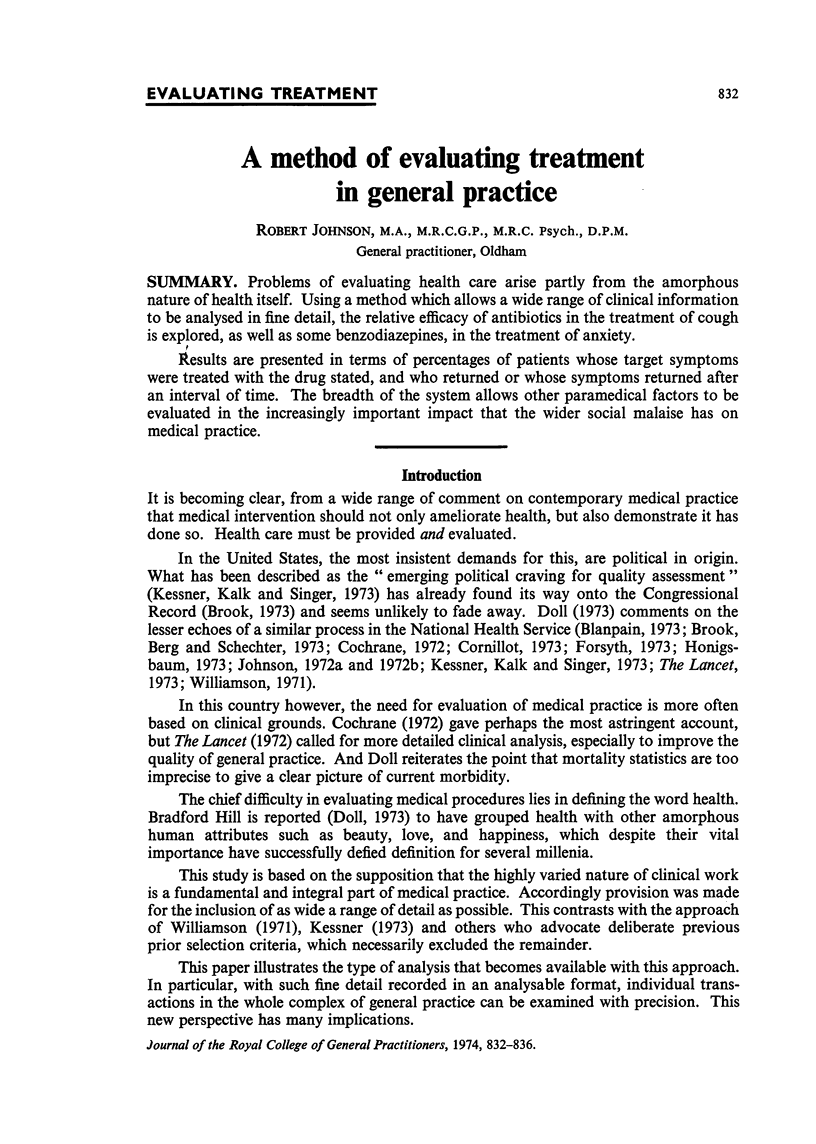
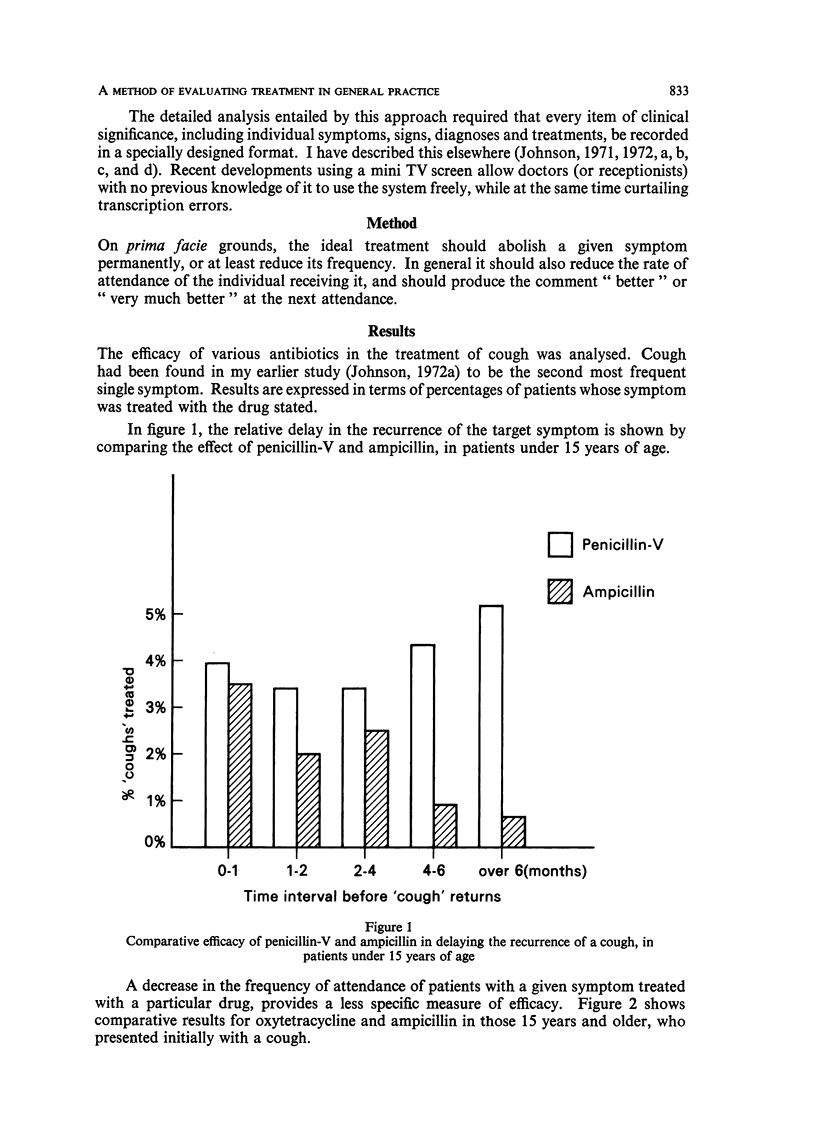
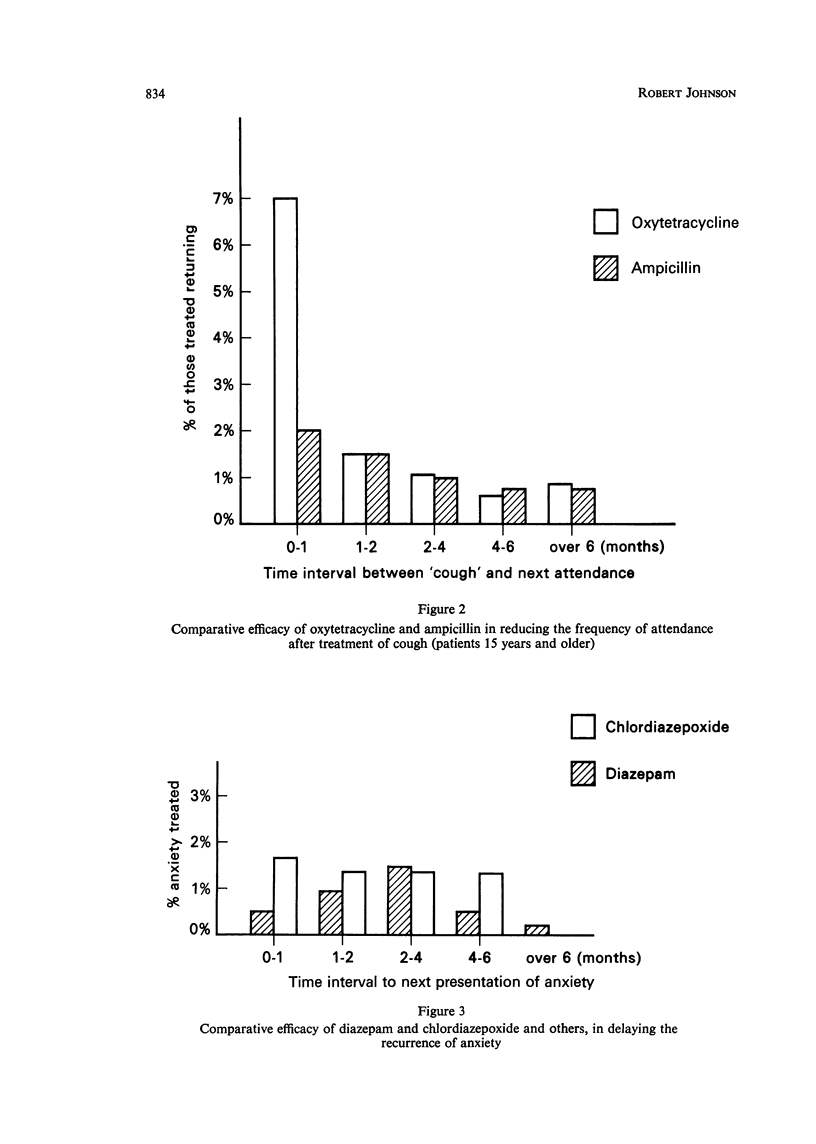
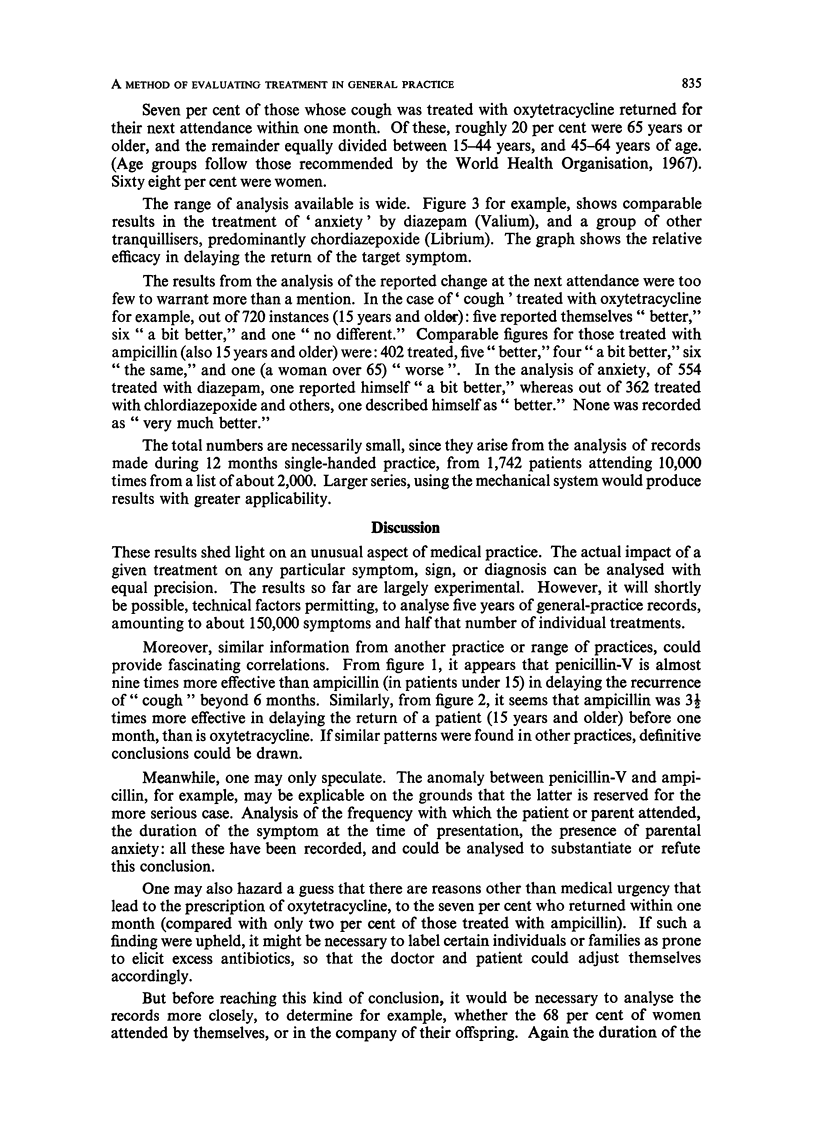
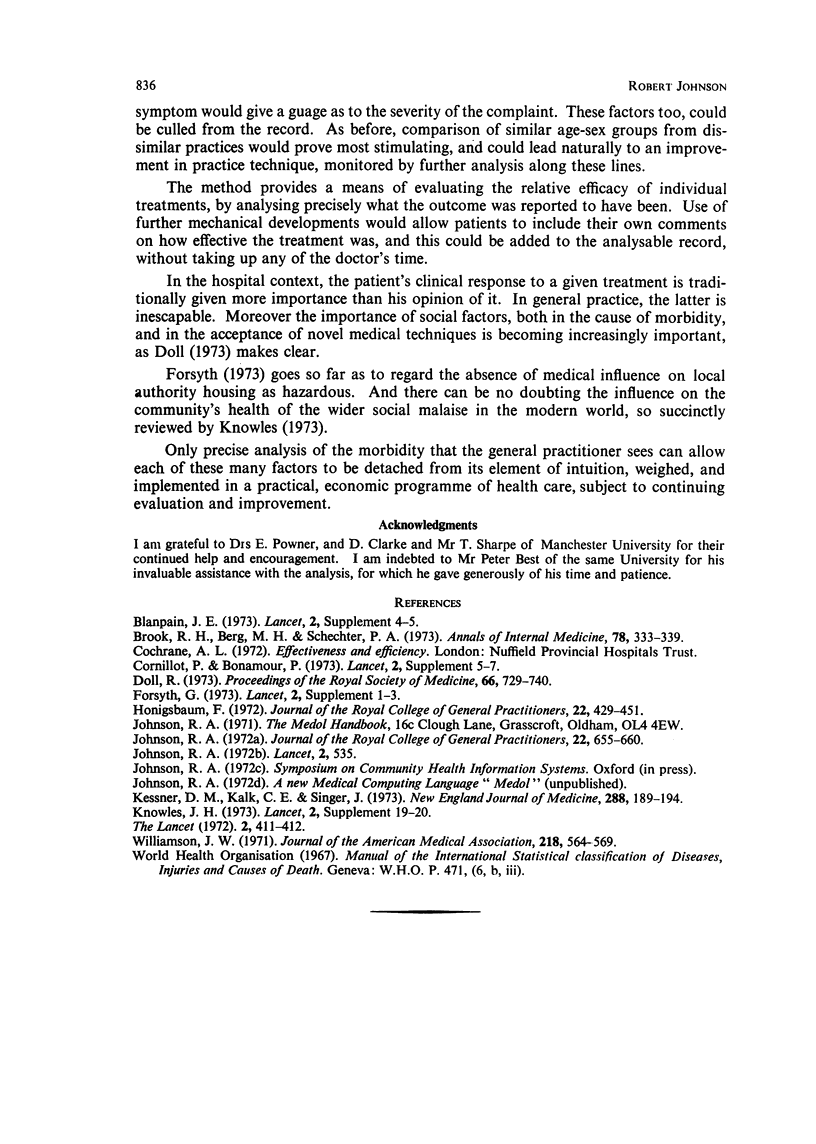
Selected References
These references are in PubMed. This may not be the complete list of references from this article.
- Brook R. H., Berg M. H., Schechter P. A. Effectiveness of nonemergency care via an emergency room. A study of 116 patients with gastrointestinal symptoms. Ann Intern Med. 1973 Mar;78(3):333–339. doi: 10.7326/0003-4819-78-3-333. [DOI] [PubMed] [Google Scholar]
- Doll R. Nuffield Lecture. Monitoring the National Health Service. Proc R Soc Med. 1973 Aug;66(8):729–740. [PMC free article] [PubMed] [Google Scholar]
- Honigsbaum F. Quality in general practice. A commentary on the quality of care provided by general practitioners. J R Coll Gen Pract. 1972 Jul;22(120):429–451. [PMC free article] [PubMed] [Google Scholar]
- Johnson R. A. Computer analysis of the complete medical record, including symptoms and treatment. J R Coll Gen Pract. 1972 Oct;22(123):655–660. [PMC free article] [PubMed] [Google Scholar]
- Kessner D. M., Kalk C. E., Singer J. Assessing health quality--the case for tracers. N Engl J Med. 1973 Jan 25;288(4):189–194. doi: 10.1056/NEJM197301252880406. [DOI] [PubMed] [Google Scholar]
- Williamson J. W. Evaluating quality of patient care. A strategy relating outcome and process assessment. JAMA. 1971 Oct 25;218(4):564–569. [PubMed] [Google Scholar]


